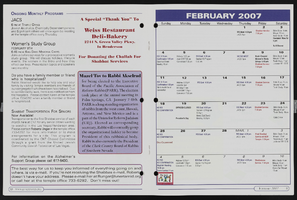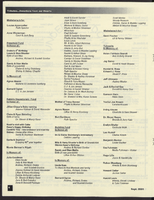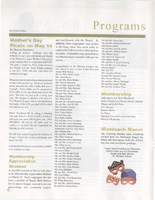Search the Special Collections and Archives Portal
Search Results
Lamar and Patricia Marchese Papers
Identifier
Abstract
The Lamar and Patricia Marchese papers (1959-2015) contain awards, correspondence (both professional and personal), a Clark County Services and Facilities Directory, newspaper and magazine clippings, pamphlets, Parks and Recreation information, KNPR events and newsletters, art exhibits brochures, and musical performances brochures. The collection chronicles the contributions of the long-time Las Vegas community leaders through photographs, speeches, an interview done with Lamar Marchese, professional papers, audiovisual materials, Las Vegas Centennial Board (LVCB) end of year report, and a LVCB book.
Archival Collection
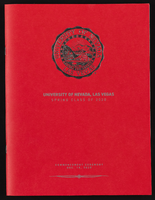
University of Nevada, Las Vegas (UNLV) Spring 2020 commencement program
Date
Archival Collection
Description
Commencement program from University of Nevada, Las Vegas Commencement Programs and Graduation Lists (UA-00115).
Text
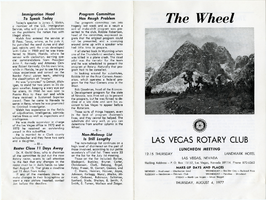
The Wheel Las Vegas Rotary Club newsletter, August 4, 1977
Date
Archival Collection
Description
Text
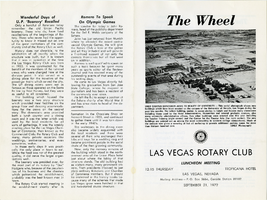
The Wheel Las Vegas Rotary Club newsletter, September 21, 1972
Date
Archival Collection
Description
Text
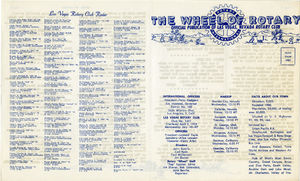
The Wheel of Rotary Las Vegas Rotary Club newsletter, November 23, 1949
Date
Archival Collection
Description
Text

Dr. Javier A. Rodríguez oral history interview: transcript
Date
Archival Collection
Description
Oral history interview with Dr. Javier A. Rodríguez conducted by Elsa Lopez and Barbara Tabach on December 19, 2019 for the Latinx Voices of Southern Nevada Oral History Project. Dr. Javier Rodríguez, Biology Professor at the University of Nevada Las Vegas, talks of his personal and educational history that led him to UNLV. He discusses his migration from Puerto Rico to California where he received his PhD from the University of California Berkley and became a biological museum curator for various animal specimens. He later moved to Las Vegas to teach at UNLV where he has now been for nearly two decades; Dr. Rodríguez shares how UNLV has changed since he first started working here, including the university's increased interest in faculty research to become a Top Tier institution. Subjects discussed include: Puerto Rico; University of California Berkley; University funding; Tier 1 research institutions.
Text

